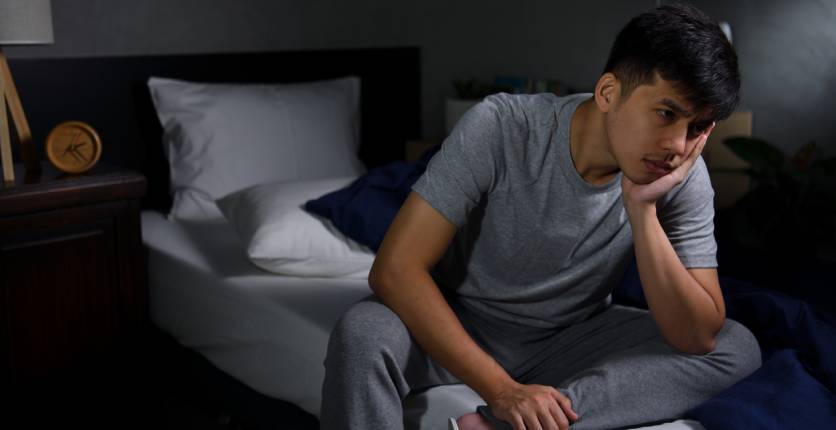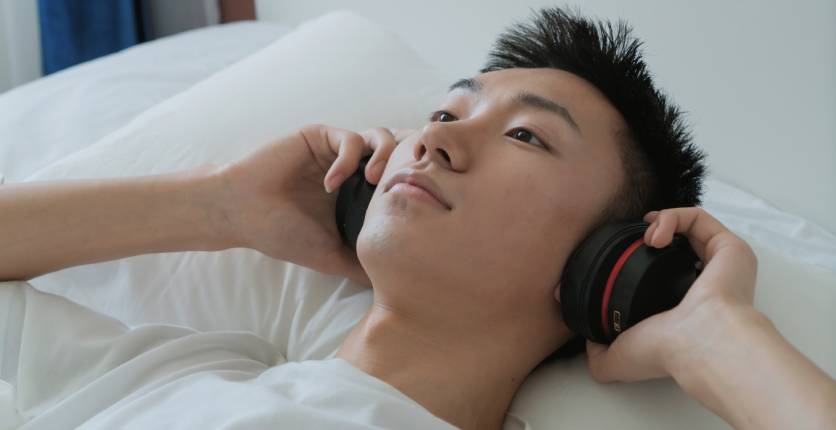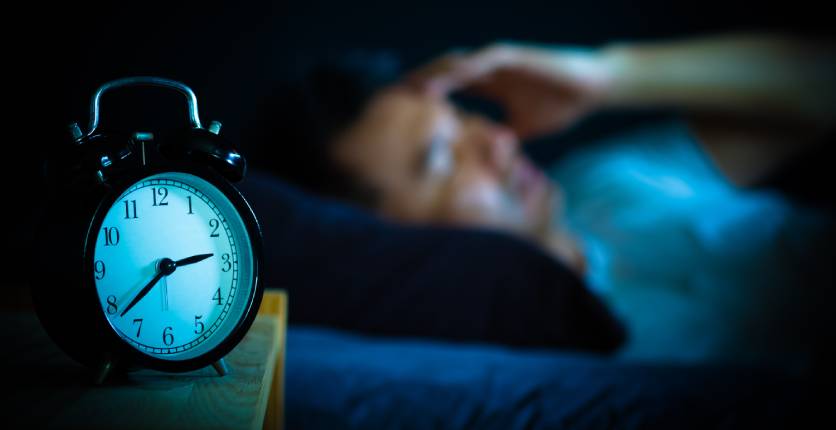We have all been through this: You wake up to pee, and when you have done the deed and slump back into bed. You. Can’t. Go. Back. To. Sleep. For whatever reason that you suddenly wake up in the dead of the night – a crying child, that noisy upstairs neighbour, a nightmare – there are times when you try as hard as you might to return to slumberland, but you just can’t. Instead of further tossing and turning, thinking about how you can solve this in the unfortunate event that it does happen, try these tips to help you catch back as many of those flighty ZZZs as you can.
Stop Staring At The Clock
As much as you might be tempted to do so, don’t keep checking the time repeatedly; it will just make you feel worse. By looking at the clock and counting the minutes, or even listening out for its tick-tocks, adds to your distress, exacerbating your anxiety about being awake and your possible lack of sleep for the next day’s important activities, say, for a work meeting or dinner date (eeeks). Turn the clock away from your line of sight if you must.
Chill Yourself Out
While lying in bed, try these few simple methods to help put your body and mind at ease again.
Deep breathing: Take a slow deep breath through your nose and from your belly, and exhale from your mouth. Perform these actions a few times. Or, attempt the 4-7-8 breathing technique: Exhale completely through your mouth, then inhale through your nose for 4 seconds, hold your breath for 7 seconds, then exhale for 8 seconds.
Progressive muscle relaxation: Starting from your toes to your forehead, tense each bodily muscle group for 5 seconds, then relax them. Or, you can perform your own simple “full-body body scan” by beginning from the top. Close your eyes and breathe slowly, then focus on your face and on relaxing each of your facial muscles. Then, move your focus onto your neck and shoulders and think about relaxing them as well. Continue this sequence of focusing and relaxing your muscles throughout the length of your body until you reach your toes.
Visualisation: Simple – just imagine the sights, sounds and scents of your favourite peaceful place. It can help mentally distance yourself from your source(s) of stress.

Get Your Bod Out Of Bed
Yes, it may surprise you to do this, but if Mr. Sandman doesn’t pay you a visit again after 15 to 20 minutes of you twisting and turning like a losing, amateur wrestler, leave the ring, we mean, bed and get out of your bedroom and into another living space. If you don’t exactly know how long you have been wrestling the sheets and smacking down that pillow, use your internal “mind clock” to do a guess-timate. The reasons for leaving your sleeping area: So that you don’t spend time in bed worrying about how to get back to sleep and associating the bed and bedroom with bad sleeping quality. Plus, if you are sleeping with a partner, it’s also a good move so as to not end up disturbing his or her rest as well.
Do Something Boring
Find an uninteresting activity so you can become bored. Some dull things to try: count sheep, read that big tome you bought but never got through, peruse this article (hah). As long as it is a task that occupies your mind by distracting you from the stress of falling asleep or thinking about problems without making you mentally or physically alert (so no online gaming or cleaning your kitchen, please), activities that make you yawn are the best for switching on your inner snooze button. Head straight to bed when you start feeling your eyes droop.

Listen To Relaxing Tunes
For some of us, music can also aid in calming us and putting us in the “Zzz-one”. But, you might have to experiment and find the right kind of music to help you get there – try some relaxing new-age or classical compositions for starters. Also, do remember to use earphones or earbuds (you can choose to go wireless, as long as you don’t mind having to search for dislodged ones under your bed when you wake) – you don’t want to wake up the rest of the family with your “lullabies” played aloud, plus the earpieces can help block off undesirable sounds or noises that could disrupt your sleep.
Turn Down The Lights
This might be after the fact and more a preventive than prescriptive measure, but, if you are getting out of bed – to get a drink or to relieve yourself – keep the lighting dim. Even if you end up being fidgety and need to make your way around the home, make sure the lights aren’t too bright as light will make you feel even more alert. Also, if you intend to do some reading so as to feel drowsy, don’t use backlit screens or screens that emit blue or bright light in the dark such as laptops, mobile phones or tablets as they might interfere with your sleeping habits or patterns. Opt for warm lighting – it’s oft claimed that such orangish-hued lighting promotes relaxation.

Have A Drink…
But not too much, and certainly not the “wrong stuff”. Too much, and you might end up waking up again to head to the loo. And, by “wrong stuff”, we mean stimulants such as caffeinated beverages like coffee, some teas, chocolate and carbonated soft drinks. And while for some people, a shot of alcohol or a nightcap could aid in helping them turn in, it is not advisable as it may interfere with one’s sleep pattern, cycle or quality in the long run. Keep your tipple simple – a small cup of herbal decaffeinated tea (try soothing lavender or calming chamomile), or just warm water (to help lubricate a parched mouth or throat, which could have been the reason why you woke up in the first place), or perhaps even the housewives’ favoured warm mug of milk (if it works for you). Just remember: The drink is suppose to help stimulate some shut-eye and should not be a stimulant in itself.
Write In A Dear (Sleep) Diary
Don’t do this when you are roused awake in the wee hours, but during the day. Why? Keeping a record of your sleeping habits and patterns – for example, what time you slept and got woken up, what disturbed your sleep, the amount of alcohol or caffeine you had and when, and the ways you tried to get back to dreamland – might just help you work out why you are experiencing such restless sleep, the tips that work and don’t, and how to resolve your sleeping problem. And, if you can’t untangle the issue on your own, this sleep diary is good to have to show a doctor for when and if you feel you need to consult one.

See The Doc If You Must
If it’s just that one- or two-time occurrence every now and then that you wake up and are unable to get your required rest for the night, it’s probably nothing to, well, lose more sleep over; The abovementioned tips might just be of enough benefit to you for that troubled night. But, if you happen to experience such episodes of insomnia much more frequently, say a few times a week over a prolonged period, or find that such sleep problems are starting to affect your daily living, work or health, it’s best to turn to a medical professional such as your family doctor or a neigbourhood GP, just to get some proper advice on how you can better spend your “nightlife”… sleeping well, that is.
References:
webmd.com/sleep-disorders/tips-for-better-sleep
healthline.com/health/how-to-go-back-to-sleep
health.harvard.edu/staying-healthy/too-early-to-get-up-too-late-to-get-back-to-sleep
health.clevelandclinic.org/5-strategies-that-will-help-you-get-back-to-sleep







